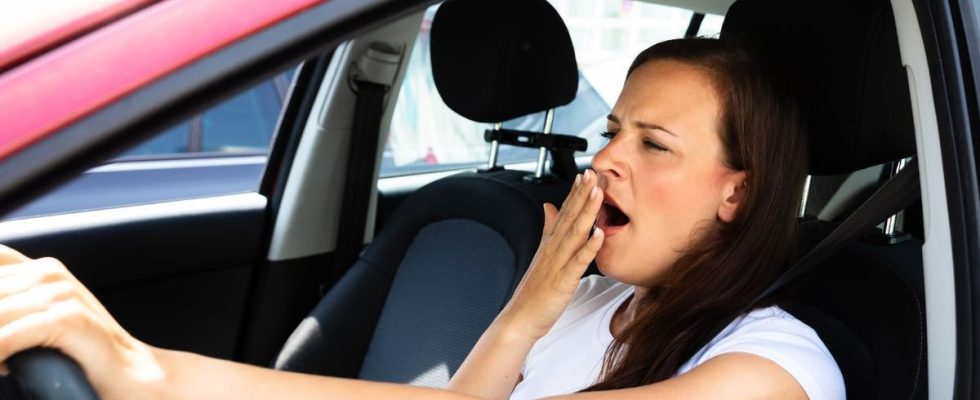We have all experienced it. The day before leaving for summer vacation, we work very late to complete all our files. Which delays the moment of packing, and even more that of going to bed. And as the rental of the house starts the next day, no question of hanging around in the morning. We sleep little then we hit the road. And this is where disaster can strike, as a scientific study* shows of Prevention Insurance unveiled this Thursday.
For this one, 25 good sleepers (who usually get 7 to 8 hours of sleep per night), young and in good health, were deprived of a part of their sleep after 13 nights where they were well rested. During this last night, they were only allowed about 4 hours of sleep, then were placed in front of a driving simulator on the highway for forty minutes (which is equivalent to 2h30 of driving in a real situation, because driving simulator requires more intense concentration). They were then subjected to four tests to assess their reaction time on the road, via sensors measuring their alertness.
24% of people tested had an accident on the simulator
And the results are clear: “Their reaction time lengthens when braking, they show signs of impaired attention”, noted Professor Patrick Lévy, pulmonologist and professor of physiology at the University of Grenoble. and medical director of BioSerenity, a telemedicine company. And the consequences are serious: “The study shows that a shortened night multiplies by 6 the risk of accident. And that 24% of those tested had an accident on the simulator, ”continues the doctor.
Of course, not all drivers react the same way to sleep deprivation. But even if they have the impression of knowing each other well, no one can predict their possible strokes at the wheel. “In addition, certain pathologies that have not been treated, such as sleep apnea, can be additional risk factors for falling asleep. Ditto for taking psychotropic drugs (antidepressants, sleeping pills, anxiolytics, etc.) the day before departure. »
“A 15-minute break every two hours”
These figures challenge, because they echo a reality. According to the latest report from the National Interministerial Observatory for Road Safety, between 2017 and 2021, the discomfort or drowsiness factor was present in 17% of fatal accidents on the motorway and 11% of fatal accidents in urban areas. And as you might guess, the risk of drowsiness is higher at night and in the early afternoon. However, this weekend is the first of the great departures on vacation. Friday is classified orange at the national level and red in Île-de-France in the direction of departures by Smart one. And Saturday is orange at the national level and red in the Great West and North. This calls for even greater vigilance.
To reduce the risk of pitching down, Road Safety, questioned by 20 minutes, recommends “a 15-minute break every two hours or handing over the wheel to another driver”. You also have to be very attentive to the signals sent by your body, which Eric Lemaire, vice-president of Assurance Prévention, lists: “These may be stinging eyes, blinking of the eyelids, stiffness of the neck and shoulders, repeated yawning, numbness…” Moreover, the Prevention Insurance study clearly shows that the accidents – fortunately virtual – could have been avoided if the drivers had been receptive to the warning signs. Because 67% of the people tested who had an accident had previously suffered from loss of vigilance.
A blood test to assess fatigue?
Other advice from Eric Lemaire: “Eat light, because digestive problems cause fatigue. You also need to stay hydrated, listen to podcasts, stretch during breaks…” Technology also helps drivers, because many vehicles are now equipped with sensors that detect small changes in trajectory and emit a signal to suggest the driver to stop. The rumble strips on certain roads also make it possible to remain alert.
And currently, Australian researchers are trying to develop a blood test that would assess the lack of sleep. This would allow countries that adopt it to set a minimum threshold of sleep needed to drive, and therefore to verbalize drivers deemed too tired to drive. But it seems unlikely that France will adopt such a system.

